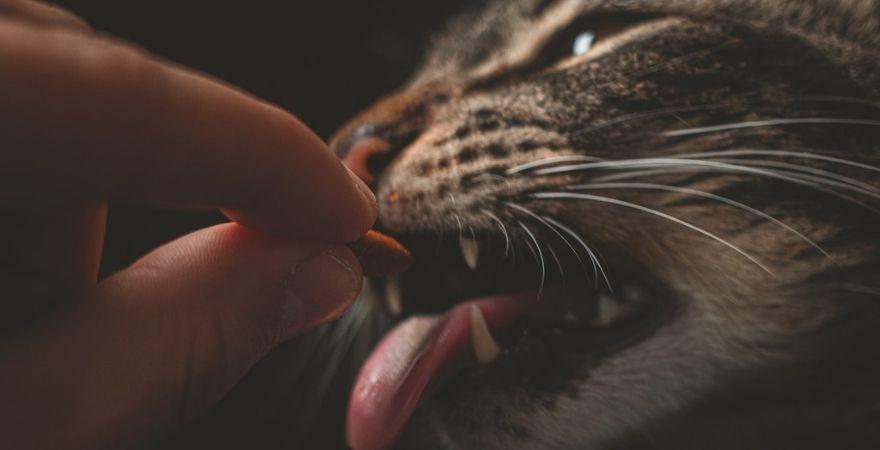
It’s that time again! And we’re not just talking about Fall - there’s just something about #sweaterweather and #catcuddles that give us warm fuzzies everywhere.
This week’s post in our Pet Parenting 101 series, we’re diving into the most common mistakes first time pet parents make during their first few months of bringing kitty home. We covered the essentials last week (which you can read here - just in case you forgot something), now we’re looking at the mistakes you can avoid - or fix, that keep kitty from getting to know you better, and trusting you. No worries if you got yourself into a hairball (or two…), we’ve all been there!
Here’s our unofficial 5 most common mistakes first Pet Parents of kitties make:
1) You think your cat is a dog — no disrespect to our doggo lovers, but cats take time to warm up, degree by degree. If you’re thinking it’s all snuggles and purrs from day one friend, you are mistaken.
A new environment with a new routine and a new human (ie you), means starting the process of earning kitty’s trust. Your presence, tone of voice, and any corrective behavior you use helps your cat decide whether to associate you with good, or bad vibes — then act accordingly (e.g. hiding whenever you’re nearby).
It’s not like cats never want attention though! When they want some lovin’ they’ll come to you because they feel comfortable around you.
If you’re all about being adored all the time? Adopting a dog will be a better choice.
2) Impulse buying a cat — it really doesn’t help that you live around the corner from your local shelter, which means plenty of opportunity to “take a quick look” at all the fur babies you could take home with you RIGHT NOW! Tempting as it is to fill your arms with bundles of warmth — or more realistically, almost break your arms from the amount of cat carriers you’d be taking with you, we need you to pump those kitty brakes for a hot second.
Are you sure you’re ready to take care of a pet right now?
No shade, but taking care of a pet, especially a cat is a big commitment - like a 20 year commitment. The fur baby you’re seeing at the shelter will grow up to be a fur senior citizen.
And like every healthy, happy relationship, we don’t just throw the whole thing away as soon as the “aww” factor goes away right? Exactly.
Do a self-check and make adjustments to get yourself in a place that helps you and kitty live happily ever after.
3) Adopting too early — Baby kittens are so precious it’s ridiculous! So is the idea that they can be taken away from their mother at such a young age.
According to AnimalWised.com, cats learn their normal behaviors by spending time with their mother and siblings, which better prepares them for the time when they’re actually on their own (or in this case, with you).
The ideal time to adopt a kitten? When their weaning period is over, which should occur naturally, and never before they’re a month old.
 Picture by Torrey Wiley via Flickr
Picture by Torrey Wiley via Flickr
4) Ignoring hairballs — Remember the hairball or two you might’ve gotten yourself into before reading this? Yeah. Hairballs not only tend to repeat themselves, they can also be dangerous for kitty’s health. Cats are very clean animals, and groom themselves often.
While feeding your cat may not be as big a challenge (they’ll definitely have a food preference, don’t worry), not using a product that prevents the problems caused by hairballs sets your cat up for experiencing vomiting and diarrhea. Good thing we have our Hairball Be Gone Support Chews to help! It has ingredients that reduce hair shedding. Less hair? Less hairballs.
5) Not de-worming or vaccinating your cat — “I mean, kitty looked healthy when I brought them home, and they’re going to be an inside cat anyway so what’s the problem?” You wonder aloud - and hopefully to yourself. Just because your cat doesn’t leave home doesn’t mean they can’t get sick.
While there is a difference between indoor cats and cats who have access to the outside world (talking to your vet will give you a better idea what the best vaccination strategy should be for kitty), they don’t live in a bubble. Keeping on top of a de-worming (internally and externally) and vaccination schedule helps kitty fight against diseases seen (ticks and fleas) and unseen (Echinococcus — a type of tapeworm). Also, regular health checkups can tremendously decrease the probability of your furry friend getting health issues.
Any tips you think need a mention? Share your first-time pet parenting stories with us below - Afterall, we’re all in this together (hairball free of course)!
Header Image: Samuel Sleeping by Hefin Owen via Flickr.com

Stephanie Pollard
Writer. Pet Enthusiast. Ambivert.




1 comment
I just want you to know how much I look forward to your messages. They always bring a smile and a chuckle and we can certainly use them these days. So just a great big thank you to ya. Now Carry On